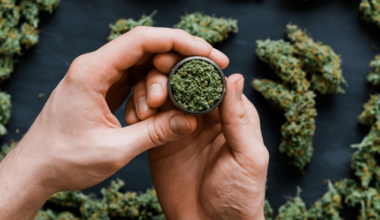
Government survey data released today by the US Department of Health and Human Services affirms that the adoption of state-specific marijuana legalization laws has not negatively impacted rates of teens’ cannabis use.
Data provided by the Substance Abuse Mental Health Services Administration’s (SAMHSA) most recent National Survey on Drug Use and Health finds that teenagers are far less likely to report consuming cannabis today than they were nearly a decade ago.
Specifically, the NSDUH data reports that the percentage of those ages 12 to 17 who reported having ever tried marijuana fell 18 percent from 2014 to 2023. Those reporting having consumed cannabis during the past year fell 15 percent. The percentage of teens reporting current marijuana use fell 19 percent.
In 2014, Colorado became the first state to regulate the retail sale of cannabis products to adults. Today, 24 states — comprising more than half of the US population — have legalized the use of marijuana for those 21 and older.
Year over year, marijuana use by teens was down slightly, according to the latest NSDUH report.
Commenting on the federal survey data, NORML Deputy Director Paul Armentano said, “Sensational claims that adult-use legalization laws are linked with greater marijuana use by teens are simply not backed by reliable data. These government findings ought to reassure lawmakers that cannabis access can be legally regulated in a manner that is safe, effective, and that does not inadvertently impact young people’s habits.”
The NSDUH data is consistent with teen use data previously reported by the US Centers for Disease Control and others finding steadily decreasing rates of marijuana use by adolescents.
Additional information is available from the NORML Fact Sheet, ‘Marijuana Regulation and Teen Use Rates.’
Related
Medical Disclaimer:
The information provided in these blog posts is intended for general informational and educational purposes only. It is not a substitute for professional medical advice, diagnosis, or treatment. Always seek the advice of your physician or other qualified healthcare provider with any questions you may have regarding a medical condition. The use of any information provided in these blog posts is solely at your own risk. The authors and the website do not recommend or endorse any specific products, treatments, or procedures mentioned. Reliance on any information in these blog posts is solely at your own discretion.






